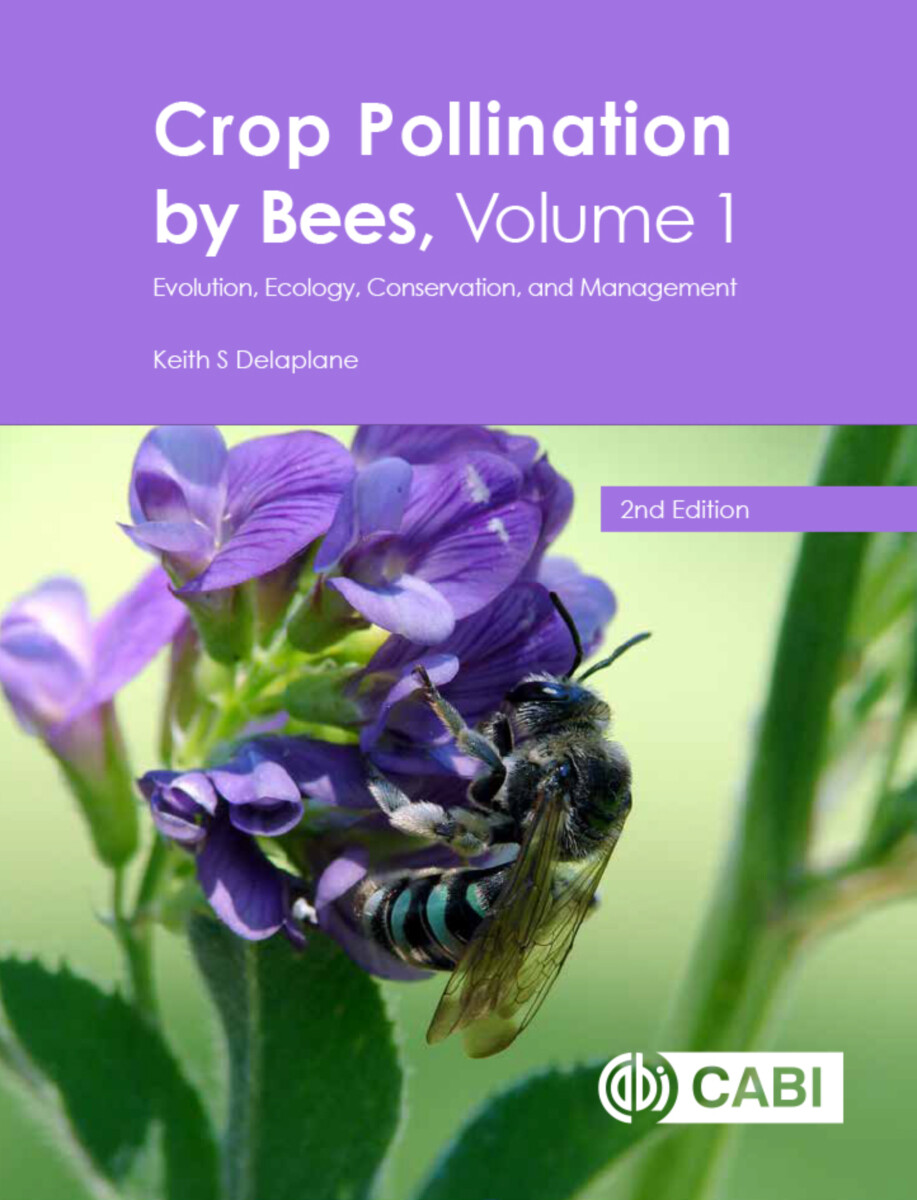Crop Pollination by Bees Edition 2
Volume 1 — Evolution, Ecology, Conservation, and Management- Publisher
CABI - Published
28th July 2021 - ISBN 9781786393494
- Language English
- Pages 208 pp.
- Size 7" x 9"
The collapse of the ubiquitous honey bee population during the past 35 years has caused a pollination vacuum for many crops. Surveys and grower experience indicate that a crisis exists in pollinator populations. This book is a practical research-based guide to using bees for crop pollination. It emphasizes conserving feral bee populations as well as more traditional methods of culturing honey bees and other bees. There are two main sections that address the biology of pollination, and culturing and managing bees for optimum crop pollination.
Volume 1 is intended as a practical guide to bees and how they pollinate essential crops, providing simple, succinct advice on how to increase bee abundance and pollination.
Volume 2 provides the reader with information on bee pollination of specific crops.
Both volumes will be essential reading for farmers, horticulturalists, and gardeners, and researchers and professionals working in insect ecology and conservation, and students of entomology and crop protection.
1: Angiosperms and Bees: The Evolutionary Bases of Crop Pollination
2: Biology of Bees
3: What Makes a Good Pollinator?
4: Economic and Ecosystem Benefits of Bee Pollination
5: State of the World’s Bee Pollinators and the Consequences for Crop Pollination
6: Applied Bee Conservation
7: Honeybees: Their Biology, Culture and Management for Pollination
8: Bumble Bees: Their Biology, Culture, and Management for Pollination
9: Managed Solitary Bees
10: Wild Bees
11: The Stingless Bees, Tribe Meliponini
Keith S. Delaplane
Keith S. Delaplane is a professor at the University of Georgia where he has responsibilities in research, graduate student advisement, and public outreach in pollinator management, social evolution, pathology, and conservation. He has won numerous awards including the highest honor for outreach faculty at the University of Georgia, a named professorship, the Walter B. Hill Fellow. In 2014 HRH Queen Elizabeth II recognized him as an honorary Member of the British Empire (MBE) for his research and education efforts throughout the UK.


